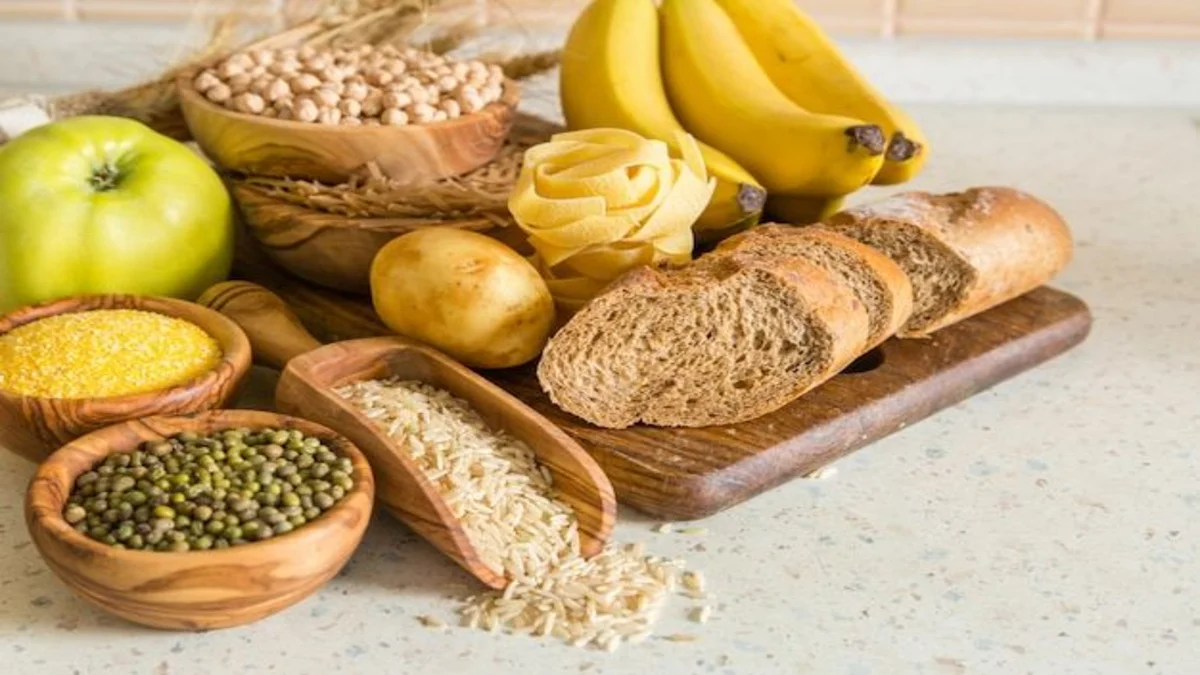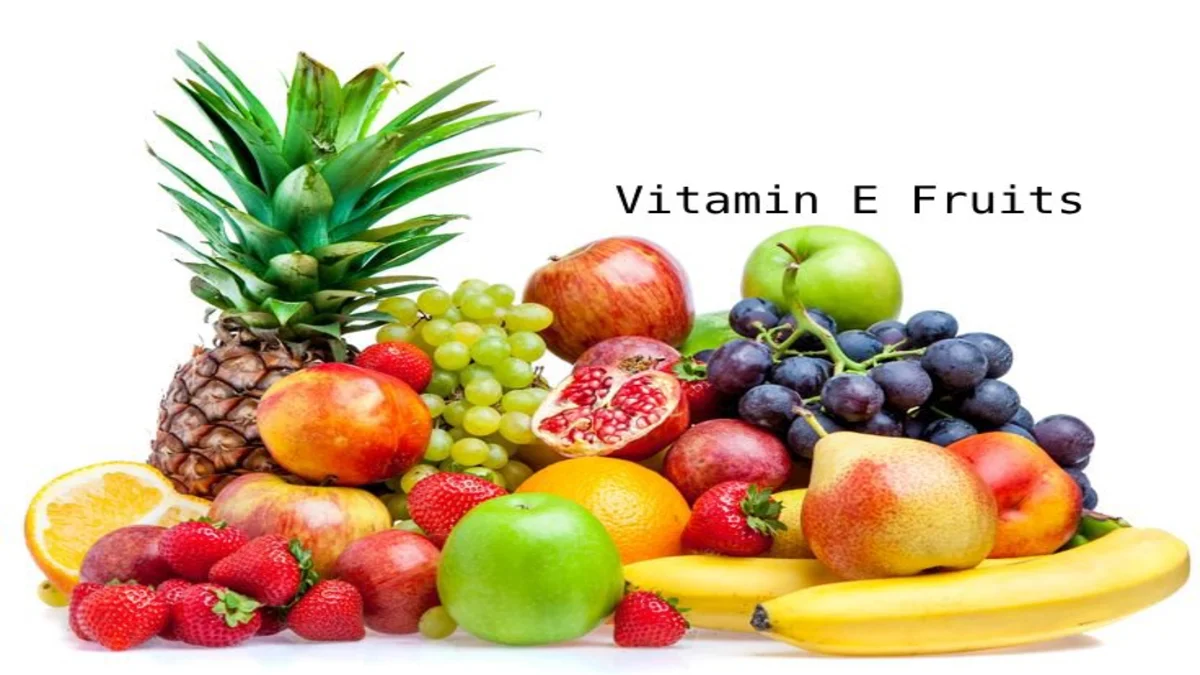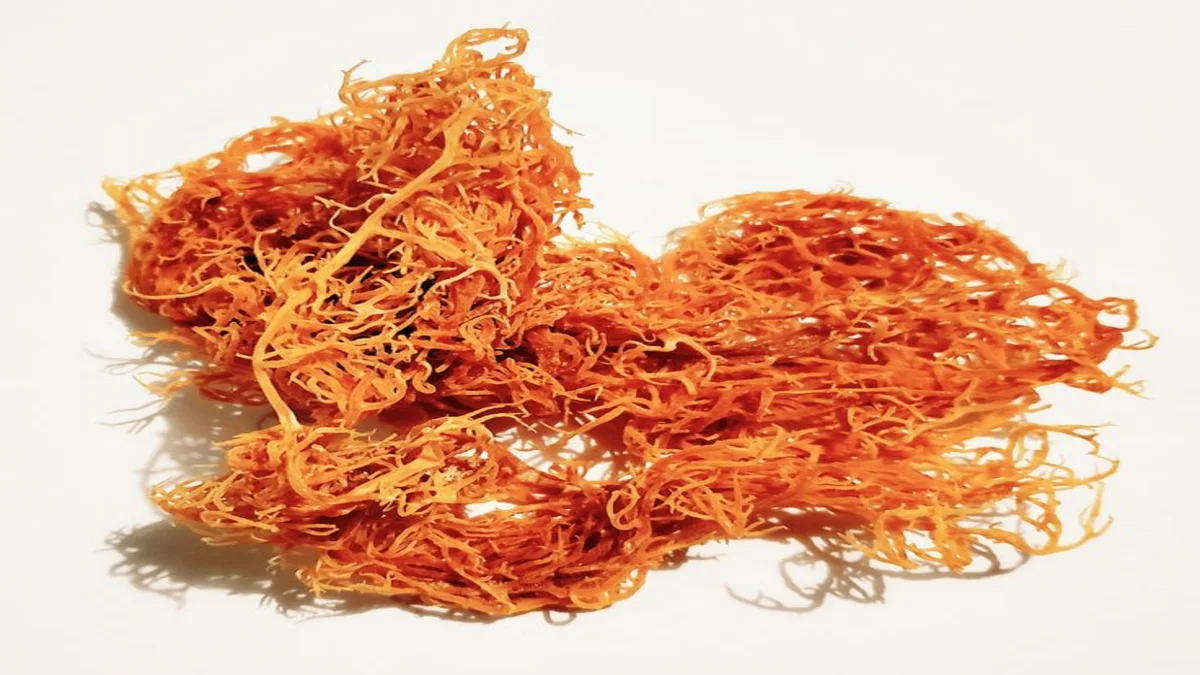What Gut Health Foods should you eat to improve gut health?
The human digestive system is complex and requires a balance between good bacteria and bad bacteria. If the balance is off, it can cause problems such as diarrhea or constipation.
There are certain gut health foods that can help restore the balance of good bacteria in our intestines. These include probiotics, prebiotics, fiber, and fermented gut health foods.
how to improve gut health naturally?
Probiotics are good bacteria that are present in fermented gut health foods like yogurt, kimchi, miso, and sauerkraut. You may increase the healthy bacteria in your gut by eating gut-health foods that are naturally high in probiotics.
The most prevalent strains of the beneficial bacteria, Lactobacillus and Bifidobacterium, each have their own unique kinds.
Probiotics can assist with diarrhea, increase your immune, keep your heart and skin healthy, as well as balance your gut bacteria and avoid chronic disease.
healthy gut foods for breakfast
| Kimchi | ||
| Kefir | ||
| Kombucha | ||
| Miso | ||
| Tempeh | ||
| Yogurt | ||
| Leeks | ||
| Onions | ||
| Raspberries | ||
| Legumes and beans | ||
| Garlic | ||
| Bananas | ||
| Pears | ||
| Watermelon |
1. Sauerkraut
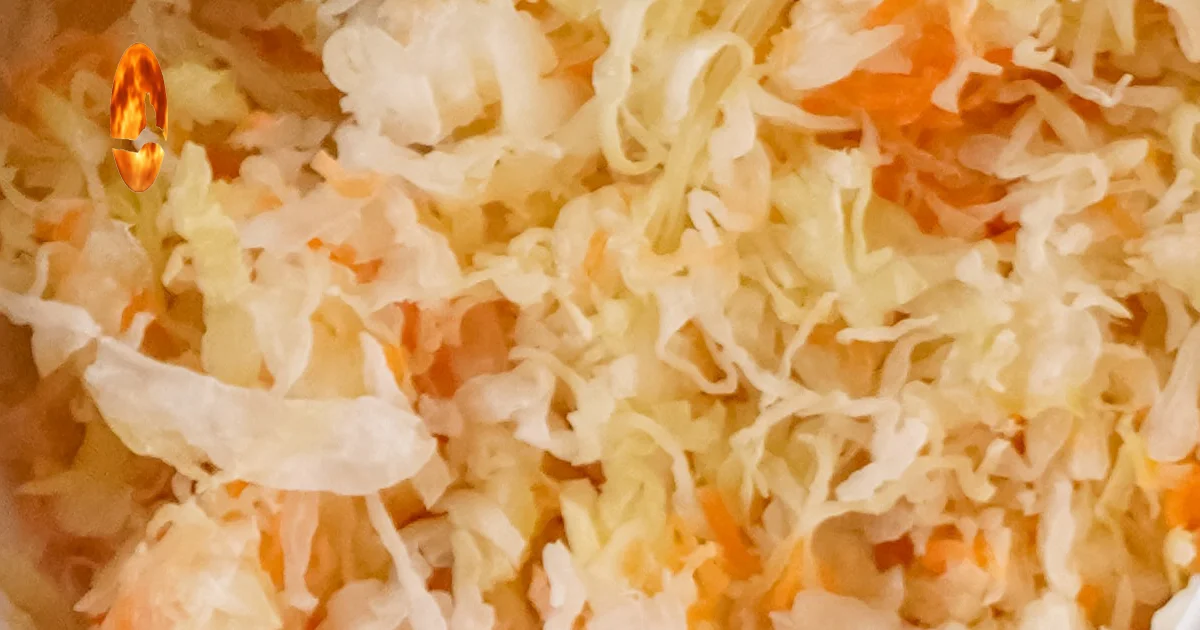
Salt and cabbage are used to make sauerkraut. Microorganisms consume the sugar in cabbage during fermentation to produce carbon dioxide and acids. Probiotics are beneficial bacteria that are produced during fermentation and help with digestion and intestinal health.
According to the USDA, one cup of raw cabbage contains 36% of your DV for vitamin C and 56% of your DV for vitamin K.
Serve your friends some gut health foods that are good for their bellies by putting sauerkraut on a hot dog, replacing pickles in sandwiches or burgers with it, adding it to potato salad, or putting it on a cheese platter.
2. Kimchi
Kimchi is the hot Korean relative of sauerkraut, which is similarly fermented cabbage. Shrimp, radishes, and scallions can be added to it to enhance the flavor. It can be found in the refrigerator section next to pickles, various Asian sauces, and sauerkraut.
A fried rice bowl with veggies and an egg is great with kimchi added to it.
3. Kefir
Like yogurt that you can drink, kefir. It is created when milk’s carbohydrates are fermented by kefir grains, which are microbial colonies of yeast and lactic acid bacteria. This process gives the product a tangy flavor and slightly thicker consistency. Kefir is brimming with probiotics, much like yogurt is.
To avoid extra sugars, buy plain kefir (instead of flavored) or prepare your own kefir. Kefir has a somewhat tangy and acidic flavor from fermentation, which makes it a delicious substitute for milk in a morning smoothie. Or, for a healthy combination of bacteria and fiber, consider replacing the milk in one of our overnight oats dishes with kefir.
4. Kombucha
A SCOBY (symbiotic colony of bacteria and yeast) and sugar are added to green or black tea to create the tart, bubbly tea known as kombucha. After that, it ferments for a week or longer. Alcohol and gases created during fermentation give kombucha its natural carbonation.
According to federal legislation, any product with more than 0.5% ABV must be controlled and promoted as an alcoholic beverage. The typical level of alcohol is less than 0.5% ABV, therefore commercially made kombucha must not include more alcohol than this. However, it has been discovered that some homebrewed kombuchas have ABV levels closer to 2-3%.
Lactic acid bacteria, which are known to serve as a probiotic, are created when tea ferments. You’ll also benefit from the tea’s antioxidant benefits if you drink kombucha prepared from green tea.
You should be aware that some kombuchas, such as those prepared with black tea, contain caffeine. Read labels—or make your own—because some contain artificial sweeteners that may harm gut health foods flora and defeat the point of drinking it.
5. Miso
A fermented paste called miso is created from soybeans, barley, or rice. Beneficial bacteria are created throughout the fermentation process, just like they are with other fermented gut health foods. Eating miso made from soybeans can also provide you with some protein. Since miso is also heavy in salt, a little bit goes a long way.
Miso is a fantastic addition to soup bases, sauces, and dressings. Try it with the salmon with miso and maple.
6. Tempeh
Tofu and tempeh are both made from soybeans, but tempeh is a fermented gut health food, which means it contains probiotics. Soybeans are fermented, then pressed into a cake to create tempeh. After that, it can be baked, sautéed, or grilled. Tempeh is a fantastic choice for vegetarians and vegans because it is strong in protein. B vitamins, calcium, manganese, zinc, and copper are also abundant in them.
Try marinating tempeh, grilling it, then incorporating it into a salad. or prepare grain bowls with tempeh.
7. Yogurt
The most well-known probiotic is likely yogurt, and for good reason. It is created by adding healthy bacteria to milk, where they break down lactose to produce lactic acid and other advantageous germs. To ensure 100 million probiotic cultures per gram at the time of manufacture, look for yogurt with the “Live & Active Cultures” seal. You may also tell if there are germs in the yogurt by taking a quick look at the ingredients list.
Do you avoid dairy? If you’re lactose intolerant, yogurt may still be enjoyable for you because the microorganisms in it aid in the digestion of some of the lactose (milk sugar) (and kefir:)
Additionally, numerous businesses now provide probiotic-containing dairy-free, and vegan yogurts.
8. Leeks
Leeks include a lot of gut-friendly fructans. One cup of leeks has 12% DV for vitamin C and 35% DV for vitamin K, according to the USDA. Vitamin C is an antioxidant, and vitamin K aids in blood clotting.
Leeks are versatile ingredients that can be used in virtually any recipe. Try adding them to an omelet or sautéing them with roasted potatoes. As an alternative, brush whole leeks with oil, grill them for a little time, and then toss them with your preferred vinaigrette. Try our oven-braised leeks, which can be prepared in only 15 minutes.
9. Onions
Inulin, fructans, and fructooligosaccharides are abundant in onions (FOS). According to a review of the literature published in the International Journal of Molecular Sciences in 2022, FOS is not only a prebiotic that aids in the development of gut flora, but it also helps to improve a variety of conditions, such as diarrhea, osteoporosis, atherosclerosis, gastrointestinal disorders, cardiovascular disease, and type 2 diabetes.
Onions can be used in a variety of dishes. They can be grilled and placed on top of turkey burgers, roasted with herbs, or used as a side dish.
10. Raspberries
8 grams of fiber, or around one-third of your Daily Value, may be found in one cup of raspberries, according to the USDA (DV). Raspberries are an abundant source of polyphenols, strong antioxidants that your gut flora adores. Polyphenols function as prebiotics by promoting the growth of good bacteria and preventing the formation of pathogens, according to a 2018 review in the journal Neural Regeneration Research.
Although frozen raspberries can be purchased and added to a smoothie, fresh raspberries are just as tasty and nutritious. A high-fiber cereal, yogurt, or oatmeal are other options.
11. Legumes and beans
Many people avoid beans out of concern about gas, although flatulence is actually a sign that your gut bacteria are actively working. Beans and other legumes, including black beans, chickpeas, peas, lentils, and white beans, are still whole when they enter the large intestine (colon).
They are there where gut bacteria eat them. Fermentation is the term for this action. What about the result? Gas. Therefore, even though it could be uncomfortable, you can be confident that your bacteria are functioning normally.
Pick three different types of canned beans, rinse them, and combine them for an easy bean salad. or top tacos with black beans. Even dried lentils simmer in just 15-20 minutes, making them a quick and simple addition to your favorite soups and stews. Lentils are wonderful in soup.
12. Garlic
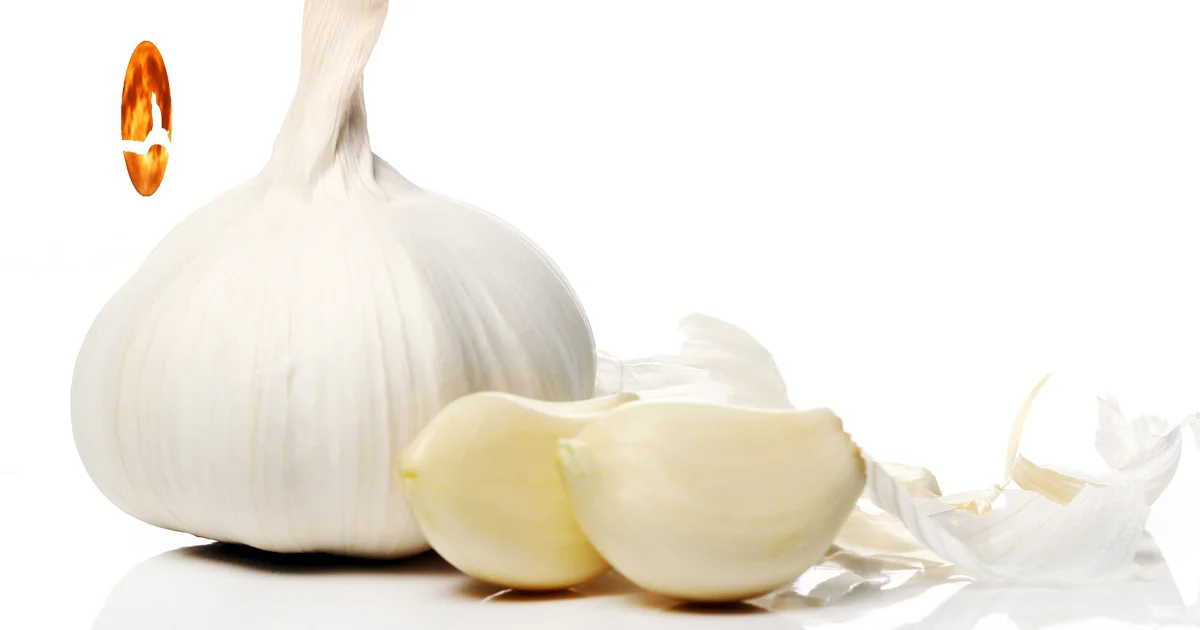
In addition to being an anti-inflammatory in the body, garlic may help lower the risk of heart disease. The two primary fibers in garlic—a potent prebiotic pair—are inulin and fructooligosaccharides.
Garlic, however, has additional benefits. Due to its antioxidant, anti-inflammatory, and lipid-lowering qualities, a review published in the year 2020 in the journal Antioxidants noted that garlic has also demonstrated good health impacts on cancer, cardiovascular disease, metabolic disorders, blood pressure, and diabetes. There is a tonne of advantages in those tiny cloves!
A good garlic press is necessary if you don’t enjoy fussing with peeling garlic cloves (and the stench it leaves on your hands). The whole clove can be placed within without needing to be peeled (please!). Almost any gut health foods can be seasoned with garlic. It is sautéed with onions and added to spaghetti or a stir-fry.
13. Bananas
According to a 2019 review in the journal Nutrients, green bananas (the unripe ones) are the best for the stomach because they contain resistant starch, a form of indigestible fiber that increases the number of good bacteria when your microorganisms eat it.
According to a 2022 study published in the journal Nutrition & Diabetes, retrogradation, a naturally occurring process, can also be used to make resistant starch by heating and then cooling grains. Make enough brown rice and barley to last the entire week. Bonus: Ripe bananas are also loaded with fiber, which keeps you fuller for longer.
Eat bananas with almond or peanut butter for added protein, good fats, and fiber. They can be used as a topping on whole-wheat bread, Greek yogurt, high-fiber cereal, or overnight oats.
14. Pears
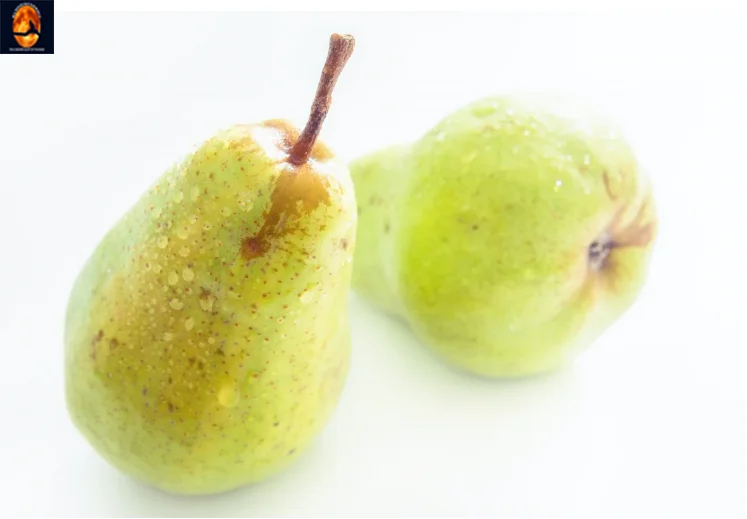
Pears contain pectin, a substance that lowers cholesterol, and are prebiotic gut health foods for the intestines. According to the USDA, a medium pear offers 5.5 grams of fiber yet just 100 calories.
Bake a pear crisp, put chopped pears into oatmeal for added cholesterol-lowering benefits due to oatmeal’s beta-glucan fiber or add a dash of cinnamon to fresh pear slices for a delightful snack.
15. Watermelon
Fructan content in watermelon is high by nature. One cup of this delicious fruit contains 14% of the daily value (DV) for vitamin C, an antioxidant that reduces inflammation, is a component of collagen, and improves iron absorption.
A mainstay of the summer, watermelon is delicious by itself. Find that monotonous? It can be used to make a cool drink like our watermelon-basil agua fresca or a summery salad when combined with feta and mint.
worst foods for gut health
1. Artificial sweeteners
Aspartame, saccharin, and sucralose are examples of artificial sweeteners that contain no calories or sugar. According to a study from 2021 that was published in the International Journal of Molecular Sciences, they travel through the body undigested, but they interact with the gut’s bacteria and alter its composition.
For the time being, keep an eye out for aspartame, saccharin, and sucralose on the labels of processed gut health foods and beverages including yogurt, granola bars, and protein bars as well as diet sodas and other liquids with no calories. Limiting these gut-health foods and beverages would be a good improvement because they frequently have salt and sugar added to them already. For a fizzy beverage with beneficial microbes for your digestive system, try substituting kombucha for soda.
2. Red Meat
According to a 2022 study from the Cleveland Clinic and Tufts University, the substance L-carnitine, which is present in red meat, interacts with gut bacteria to make trimethylamine-N-oxide (TMAO). The study demonstrates how TMAO is connected to atherosclerosis—a buildup of plaque in the arteries—and was published in the American Heart Association journal Arteriosclerosis, Thrombosis, & Vascular Biology. This demonstrates that there may be more to the relationship between red meat and heart disease than just saturated fat and sodium: gut bacterial reactions to red meat may also be important.
Consume red meat sparingly and regularly opt for fatty fish, white fish, chicken, or plant-based proteins like tofu and tempeh.
3. Refined and processed foods
That reducing highly processed meals that are heavy in chemicals and salt would benefit both you and your gut microorganisms. “I wouldn’t go so far as to say that you need to eliminate specific things out of your diet permanently—after all, gut health foods are about enjoyment, too.
Rossi
Because each gut health food has a unique set of ingredients, it is challenging to study “processed gut health foods” as a group, but the main problem with processed and refined gut health foods is that they lack diversity and fiber and are frequently loaded with extra sugar, salt, artificial sweeteners, additives, and/or preservatives. The many fibers and polyphenols that you get from consuming a variety of vibrant fruits, veggies, and whole grains help your microbiome flourish.
4. Alcohol
Alcoholism has been proven to have a deleterious effect on the intestinal microbiota, according to research, such as the 2022 review article published in Frontiers in Cellular and Infection Microbiology. A 2021 study published in Frontiers in Cardiovascular Medicine reveals that moderate alcohol use may have a beneficial effect on both the gut health foods microbiome and cardiovascular disease, despite the paucity of data on the effects of moderate alcohol consumption on gut bacteria. Drinking should be done in moderation, which is one drink for women and two for men each day if you enjoy it.
The Bottom line
Eating a lot of fruits, vegetables, nuts, seeds, and whole grains will provide you with prebiotics (gut health foods for the bacteria) and probiotics, while fermented gut health foods like yogurt and kombucha will do the opposite (good bacteria).
If you don’t usually eat any of these things, introducing them all at once may result in gas and bloating. Start with little dosages and, once each week, gradually build them up while paying attention to how you feel.
To keep your gut health foods bugs happy and your risk of chronic diseases low, consume processed meals in moderation and minimize added sugars, salt, artificial sweeteners, and alcohol.



